|
Books Should Be Free Loyal Books Free Public Domain Audiobooks & eBook Downloads |
|
|
Books Should Be Free Loyal Books Free Public Domain Audiobooks & eBook Downloads |
|
Non-fiction |
|---|
|
Book type:
Sort by:
View by:
|
By: Friedrich Nietzsche (1844-1900) | |
|---|---|
 Beyond Good and Evil
Beyond Good and Evil
Beyond Good and Evil, by Friedrich Nietzsche A searing indictment of concepts like “truth” and “language” Beyond Good and Evil, by Friedrich Nietzsche is a deeply thought provoking book that forms one of the keystones of modern thought and politics. In this book, Nietzsche takes the position that our subservience to fixed perspectives that are forced on us by our language and our ideals make us incapable of perceiving reality. He propounds the theory that ideals are not fixed but change over time, often dramatically, and end up becoming the exact opposite of what they originally were... | |
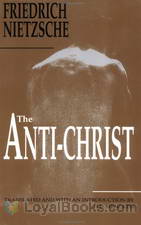 The Antichrist
The Antichrist
Save for his raucous, rhapsodical autobiography, Ecce Homo, The Antichrist is the last thing that Nietzsche ever wrote, and so it may be accepted as a statement of some of his most salient ideas in their final form. Of all Nietzsche’s books, The Antichrist comes nearest to conventionality in form. It presents a connected argument with very few interludes, and has a beginning, a middle and an end. | |
By: Joseph Conrad (1857-1924) | |
|---|---|
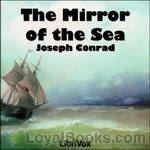 The Mirror of the Sea
The Mirror of the Sea
The Mirror of the Sea is a collection of autobiographical essays first published in various magazines 1904-6. Conrad early in his life earned his bread as a Master Mariner in sailing ships. In his Author’s Note to this work, Conrad states,”Beyond the line of the sea horizon the world for me did not exist….Within these pages I make a full confession not of my sins but of my emotions. It is the best tribute my piety can offer to the ultimate shapers of my character, convictions, and, in a sense, destiny—to the imperishable sea, to the ships that are no more, and to the simple men who have had their day.” | |
By: Harriet Beecher Stowe (1811-1896) | |
|---|---|
 American Woman's Home
American Woman's Home
| |
By: Jacob Abbott (1803-1879) | |
|---|---|
 Alexander the Great
Alexander the Great
Tutored by Aristotle, compelled to ascend the throne at the age of 20 when his illustrious father was assassinated, driven by a passion for expanding the borders of his tiny kingdom, Alexander of Macedon was one of the most towering figures of ancient history. He is brought to vivid life in this gripping volume by the American children's writer Jacob Abbott. In his short but eventful life, the young Macedonian king went on to rule over one of the most powerful and largest empires in the ancient world, breaking the hegemony of the powerful Persian dynasty of Darius... | |
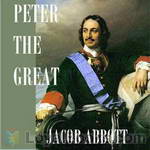 Peter the Great
Peter the Great
“There are very few persons who have not heard of the fame of Peter the Great, the founder, as he is generally regarded by mankind, of Russian civilization. The celebrity, however, of the great Muscovite sovereign among young persons is due in a great measure to the circumstance of his having repaired personally to Holland, in the course of his efforts to introduce the industrial arts among his people, in order to study himself the art and mystery of shipbuilding, and of his having worked with his own hands in a ship-yard there... | |
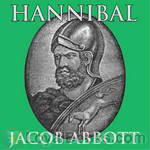 Hannibal
Hannibal
There are certain names which are familiar, as names, to all mankind; and every person who seeks for any degree of mental cultivation, feels desirous of informing himself of the leading outlines of their history, that he may know, in brief, what it was in their characters or their doings which has given them so widely-extended a fame. Consequently, great historical names alone are selected; and it has been the writer's aim to present the prominent and leading traits in their characters, and all the important events in their lives, in a bold and free manner, and yet in the plain and simple language which is so obviously required in works which aim at permanent and practical usefulness... | |
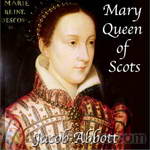 Mary Queen of Scots
Mary Queen of Scots
There are certain names which are familiar, as names, to all mankind; and every person who seeks for any degree of mental cultivation, feels desirous of informing himself of the leading outlines of their history, that he may know, in brief, what it was in their characters or their doings which has given them so widely-extended a fame. Consequently, great historical names alone are selected; and it has been the writer’s aim to present the prominent and leading traits in their characters, and all the important events in their lives, in a bold and free manner, and yet in the plain and simple language which is so obviously required in works which aim at permanent and practical usefulness... | |
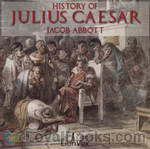 History of Julius Caesar
History of Julius Caesar
The book chronicles the extraordinary life and leadership of Rome’s Emperor Julius Caesar, from his early years to his assassination. | |
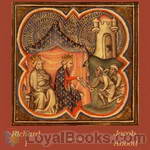 Richard I
Richard I
There are certain names which are familiar, as names, to all mankind; and every person who seeks for any degree of mental cultivation, feels desirous of informing himself of the leading outlines of their history, that he may know, in brief, what it was in their characters or their doings which has given them so widely-extended a fame. Consequently, great historical names alone are selected; and it has been the writer’s aim to present the prominent and leading traits in their characters, and all the important events in their lives, in a bold and free manner, and yet in the plain and simple language which is so obviously required in works which aim at permanent and practical usefulness... | |
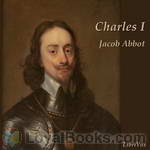 Charles I
Charles I
There are certain names which are familiar, as names, to all mankind; and every person who seeks for any degree of mental cultivation, feels desirous of informing himself of the leading outlines of their history, that he may know, in brief, what it was in their characters or their doings which has given them so widely-extended a fame. Consequently, great historical names alone are selected; and it has been the writer’s aim to present the prominent and leading traits in their characters, and all the important events in their lives, in a bold and free manner, and yet in the plain and simple language which is so obviously required in works which aim at permanent and practical usefulness... | |
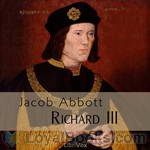 Richard III
Richard III
Jacob Abbott chronicles the unspeakably treacherous rise of Richard III to the throne of England in the midst of the war between the Yorks and the Lancasters and his ultimate fall on the Field of Bosworth. (Introduction by Cathy Barratt) | |
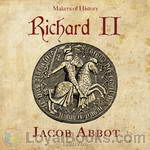 Richard II, Makers of History
Richard II, Makers of History
Chronicles the life of Richard II, born in 1367 in Bordeaux, France, who later wore the crown of King of England. | |
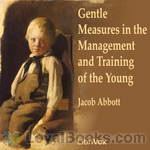 Gentle Measures in the Management and Training of the Young
Gentle Measures in the Management and Training of the Young
Subtitled, "The principles on which a firm parental authority may be established and maintained, without violence or anger, and the right development of the moral and mental capacities be promoted by methods in harmony with the structure and the characteristics of the juvenile mind." This book gives practical advice on how to raise children using "gentle measures" that do not damage the children's emotions or self esteem. Most of the information is as relevant and practical today as it was when published in 1871. | |
 The Teacher Or, Moral Influences Employed in the Instruction and Government of the Young
The Teacher Or, Moral Influences Employed in the Instruction and Government of the Young
| |
By: Henry David Thoreau (1817-1862) | |
|---|---|
 Walden
Walden
Two years, two months and two days! This is what forms the time line of one man's quest for the simple life and a unique social experiment in complete self reliance and independence. Henry David Thoreau published Walden in 1884. Originally drafted as a series of essays describing a most significant episode in his life, it was finally released in book form with each essay taking on the form of a separate chapter. Thoreau's parents were in financial straights, but rich intellectually and culturally... | |
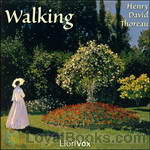 Walking
Walking
This was originally a lecture given by Thoreau in 1851 at the Concord lyceum titled “The Wild” . He revised it before his death and it was included as part of the June 1862 edition of Atlantic Monthly. This essay appears, on the surface, to be simply expounding the qualities of Nature and man’s place therein. Through this medium he not only touches those subjects, but with the implications of such a respect for nature, or lack thereof. | |
 Wild Apples
Wild Apples
| |
By: Henry James (1843-1916) | |
|---|---|
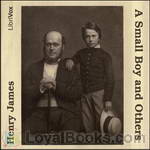 A Small Boy and Others
A Small Boy and Others
A Small Boy and Others is a book of autobiography by Henry James published in 1913. The book covers James’s earliest years and discusses his intellectually active family, his intermittent schooling, and his first trips to Europe. | |
By: Jonathan Swift (1667-1745) | |
|---|---|
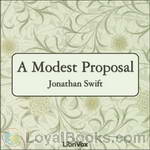 A Modest Proposal
A Modest Proposal
A satirical essay written by one of the most renowned satirists, Jonathan Swift, A Modest Proposal expresses the author’s exasperation with the ill treatment of impoverished Irish citizens as a result of English exploitation and social inertia. Furthermore, Swift ventilates the severity of Ireland’s political incompetence, the tyrannical English policies, the callous attitudes of the wealthy, and the destitution faced by the Irish people. Focusing on numerous aspects of society including government exploitation, reckless greed, hypocrisy, apathy, and prejudice, the essay successfully exemplifies Swift’s satirical skills... | |
By: Anthony Trollope (1815-1882) | |
|---|---|
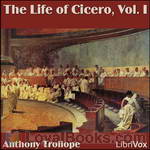 The Life of Cicero
The Life of Cicero
Marcus Tullius Cicero (106-43BC) was an orator, statesman, philosopher and prolific correspondent, who rose as a ‘new man’ in Rome in the turbulent last years of its republican government. Anthony Trollope, best known as a novelist, admired Cicero greatly and wrote this biography late in life in order to argue his virtues against authors who had granted him literary greatness but questioned his strength as a politician and as a man. He takes a personal approach, affording us an insight into his own mind and times as well as those of his subject... | |
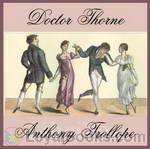 Doctor Thorne
Doctor Thorne
MANUAL OF SURGERY, OXFORD MEDICAL PUBLICATIONSBY ALEXIS THOMSON, F.R.C.S.Ed.PREFACE TO SIXTH EDITION Much has happened since this Manual was last revised, and many surgical lessons have been learned in the hard school of war. Some may yet have to be unlearned, and others have but little bearing on the problems presented to the civilian surgeon. Save in its broadest principles, the surgery of warfare is a thing apart from the general surgery of civil life, and the exhaustive literature now available on every aspect of it makes it unnecessary that it should receive detailed consideration in a manual for students... | |
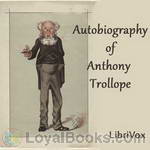 Autobiography of Anthony Trollope
Autobiography of Anthony Trollope
Anthony Trollope's autobiography will delight you whether or not you've read (or listened to) any of his many works. His honest if self-deprecating tone is at times hilarious and at times piteously moving. His detailed descriptions of his writing process and his philosophy of writing as work rather than art are fascinating. Fans of Trollope will enjoy learning the man's perceptions of his novels' shortcomings and triumphs. Anyone will appreciate learning about his years devoted to churning out literature for profit while working full time with the post office. | |
 Hunting Sketches
Hunting Sketches
| |
By: Fyodor Dostoyevsky (1821-1881) | |
|---|---|
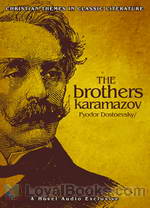 The Brothers Karamazov
The Brothers Karamazov
Set in 19th century Russia, The Brothers Karamazov (Russian: Братья Карамазовы) is the last novel written by the illustrious author Fyodor Dostoyevsky who died a few months before the book's publication. The deeply philosophical and passionate novel tells the story of Fyodor Karamazov, an immoral debauch whose sole aim in life is the acquisition of wealth. Twice married, he has three sons whose welfare and upbringing, he cares nothing about. At the beginning of the story, Dimitri Karamazov, the eldest son who is now a twenty-eight year old war veteran, returns to his home town to claim the inheritance left to him by his dead mother... | |
By: Niccolò Machiavelli (1469-1527) | |
|---|---|
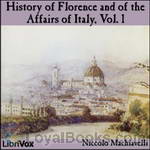 History of Florence and of the Affairs of Italy
History of Florence and of the Affairs of Italy
History of Florence and of the Affairs of Italy is an historical account by Niccolò Machiavelli. Toward the end of 1520, the Cardinal Giulio of Medici, later Pope Clement VII, offered Machiavelli the appointment to write a history of Florence. Although Machiavelli was reluctant to accept, accepting was his only way to regain the good graces of the Medici who had regained power and were in a position to offer him employment and protection. Doing the history also provided a way for Machiavelli’s views to become the “official” history of Florentine and Italian affairs. Once completed, the work was presented officially to Giulio, now Pope, in May of 1526. | |
By: James Allen (1864-1912) | |
|---|---|
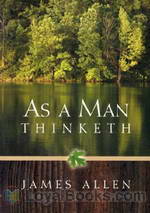 As a Man Thinketh
As a Man Thinketh
“A man is literally what he thinks, his character being the complete sum of all his thoughts,” is one of the quotes from James Allen's classic self help books, As a Man Thinketh. Published in 1902, it provides many more such insightful concepts on the power of thought and its effect on a human being's personality and behavior. This volume is more of a literary essay than a complete book and its title is based on a Biblical proverb, “As a man thinketh in his heart, so is he.” Taking this piece of ancient wisdom further, James Allen explores the far-reaching effects of the inner workings of a person's mind and motivation... | |
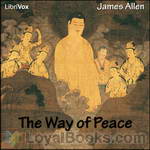 The Way of Peace
The Way of Peace
The Way of Peace is your guide to the power of meditation; self and truth; the acquirement of spiritual power; the realization of selfless love; entering into the infinite; saints, sages, and saviors; the law of service; and the realization of perfect peace. | |
By: Walt Whitman (1819-1892) | |
|---|---|
 The Wound Dresser
The Wound Dresser
The Wound Dresser is a series of letters written from the hospitals in Washington by Walt Whitman during the War of the Rebellion to The New York Times, the Brooklyn Eagle and his mother, edited by Richard Maurice Burke, M.D., one of Whitman's literary executors. | |
By: Edith Nesbit (1858-1924) | |
|---|---|
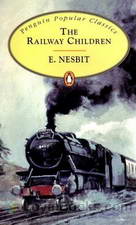 Railway Children
Railway Children
A thrilling spy story, a children's adventure, a charming portrait of early twentieth century life in London and the countryside and a heart warming family tale are all combined in this classic of children's literature The Railway Children by E Nesbit. The book has remained on the list of the best-loved children's books ever since it was first published as a serial story in The London Magazine in 1905. Later, it was published in book form and won acclaim from critics and readers across the world for its wonderful elements of character and plot... | |
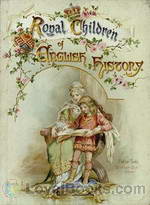 Royal Children of English History
Royal Children of English History
From the first chapter: “History is a story, a story of things that happened to real live people in our England years ago; and the things that are happening here and now, and that are put in the newspapers, will be history for little children one of these days. And the people you read about in history were real live people, who were good and bad, and glad and sorry, just as people are now-a-days.” E. Nesbit writes about some of the people behind the names, dates and battles of English History in this lovely book for older children. The original book contains some beautiful illustrations and you can see those by clicking the ‘Gutenberg’ link below. | |
By: Thornton W. Burgess (1874-1965) | |
|---|---|
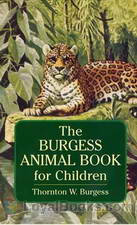 The Burgess Animal Book for Children
The Burgess Animal Book for Children
Peter Rabbit goes to school, with Mother Nature as his teacher. In this zoology book for children, Thornton W. Burgess describes the mammals of North America in the form of an entertaining story, including plenty of detail but omitting long scientific names. There is an emphasis on conservation. | |
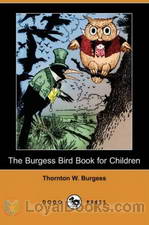 The Burgess Bird Book for Children
The Burgess Bird Book for Children
The Burgess Bird Book for Children is a zoology book written in the form of a story featuring Peter Rabbit. Peter learns from his friend Jenny Wren all about the birds of North America, and we meet many of them in the Old Orchard, the Green Meadow, and the Green Forest. | |
By: Jean-Jacques Rousseau (1712-1778) | |
|---|---|
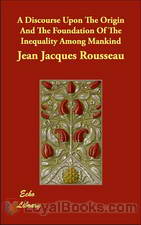 A Discourse Upon the Origin and the Foundation of the Inequality Among Mankind
A Discourse Upon the Origin and the Foundation of the Inequality Among Mankind
This work presents Rousseau’s belief in the profoundly transformational effects of the development of civilization on human nature, which Rousseau claims other political philosophers had failed to grasp. Specifically, before the onset of civilization, according to Rousseau, natural man lived a contented, solitary life, naturally good and happy. It is only with the onset of civilization, Rousseau claims, that humans become social beings, and, concomitant with their civilization, natural man becomes corrupted with the social vices of pride, vanity, greed and servility. | |
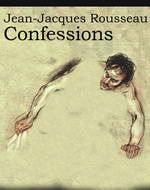 Confessions
Confessions
Considered to mark the emergence of a new literary form, the unvarnished autobiography, Confessions by Jean-Jacques Rousseau was first published in 1782, four years after his death. The philosopher and educationist whose political philosophy is credited with having inspired the French Revolution, Rousseau was a man of immense wit, talent and depth of thinking. His skill in art, music, literature and cooking along with his magnificent body of work in philosophy, politics, education and sociology have made him a legendary figure... | |
 Émile or, Concerning Education; Extracts
Émile or, Concerning Education; Extracts
| |
By: Abraham Lincoln (1809-1865) | |
|---|---|
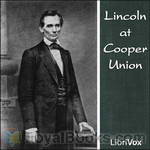 Lincoln at Cooper Union
Lincoln at Cooper Union
On 27 February 1860, Abraham Lincoln gave this address at the Cooper Union in New York City. When he gave the speech, Lincoln was considered by many to be just a country lawyer. After he gave the speech, he soon became his party’s nominee for president. | |
By: Aristotle (384-322 BC) | |
|---|---|
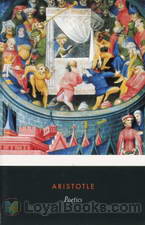 Poetics
Poetics
Aristotle’s Poetics from the 4th century B.C. aims to give a short study of storytelling. It discusses things like unity of plot, reversal of situation, and character in the context of Greek tragedy, comedy and epic poetry. But it still applies today. It is especially popular with screenwriters as seen in many script gurus’ how-to books. | |
By: Joseph Devlin | |
|---|---|
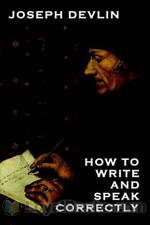 How to Speak and Write Correctly
How to Speak and Write Correctly
A book on improving eloquence, proficiency and grammar in everyday communication. ‘How to Speak and Write Correctly’ is not a manual of the styles to use in speaking and writing, nor is it a manual for grammar. It is a simple, useful book for helping ordinary people in effective communication. It lays down and explains broad rules of communication, further giving useful tips for effective communication. The book also lists common mistakes in communication and offers suggestions on how best to avoid them... | |
By: Jerome K. Jerome (1859-1927) | |
|---|---|
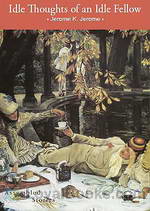 Idle Thoughts of an Idle Fellow
Idle Thoughts of an Idle Fellow
Idle Thoughts of an Idle Fellow, published in 1886, is a collection of humorous essays by Jerome K. Jerome. It was the author’s second published book and helped establish him as a leading English humorist. The book consists of 14 independent articles arranged by themes. | |
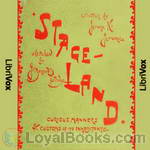 Stage Land
Stage Land
A comic look at the curious habits and customs of the inhabitants of ‘Stage Land’. Dedicated to ‘that highly respectable but unnecessarily retiring individual, of whom we hear so much but see so little, “the earnest student of drama” | |
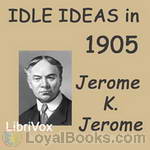 Idle Ideas in 1905
Idle Ideas in 1905
Back in 1905 Jerome K. Jerome shared his thoughts on a variety of subjects, including "Should Women Be Beautiful?", "Should Soldiers Be Polite?" and "Is The American Husband Made Entirely Of Stained Glass?". Every subject is analysed and commented on in the witty and satirical style we have grown to expect from the author. | |
By: Charles Darwin (1809-1882) | |
|---|---|
 On the Origin of Species by Means of Natural Selection
On the Origin of Species by Means of Natural Selection
Considered to be one of the books that changed the world and how we view ourselves, On The Origin of Species by Charles Darwin was met with incredulous horror when it was first published in 1859. The revolutionary, almost blasphemous ideas it described were seen as antithetical to the existing ideas of Creation contained in the Bible and other religious texts. It was mocked, reviled and the author was personally subjected to vicious persecution by the establishment and theologians. In the years that followed its publication, the book became the subject of furious intellectual and social debate... | |
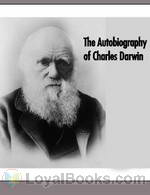 The Autobiography of Charles Darwin
The Autobiography of Charles Darwin
The Autobiography of Charles Darwin is the autobiography of the British naturalist Charles Darwin which was published in 1887, five years after his death. Darwin wrote the book, which he entitled Recollections of the Development of my Mind and Character, for his family. He states that he started writing it on about May 28, 1876 and had finished it by August 3. The book was edited by Charles Darwin’s son Francis Darwin, who removed several passages about Darwin’s critical views of God and Christianity... | |
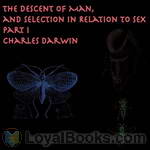 The Descent of Man and Selection in Relation to Sex
The Descent of Man and Selection in Relation to Sex
PART I. THE DESCENT OR ORIGIN OF MAN. Part 1 of 3 of book on evolutionary theory by English naturalist Charles Darwin, first published in 1871. It was Darwin's second great book on evolutionary theory, following his 1859 work, On The Origin of Species. In The Descent of Man, Darwin applies evolutionary theory to human evolution, and details his theory of sexual selection. The book discusses many related issues, including evolutionary psychology, evolutionary ethics, differences between human races, differences between sexes, the superiority of men to women, and the relevance of the evolutionary theory to society... | |
By: Alexander Hamilton (1755/1757-1804) | |
|---|---|
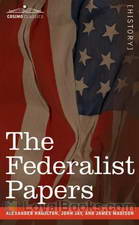 The Federalist Papers
The Federalist Papers
In order to promote the ratification of the United States Constitution in the late 1780s, Alexander Hamilton, James Madison and John Hay wrote a series of 85 articles and essays explaining their reasons to support the constitution. Most of these articles were published in The Independent Journal and The New York Packet and they later became known as “The Federalist Papers.” In reading the articles, one will encounter very interesting issues like Hamilton’s opposition to including the Bill of Rights in the Constitution and why he thinks a Union is better than a Confederation... | |
By: Arnold Bennett (1867-1931) | |
|---|---|
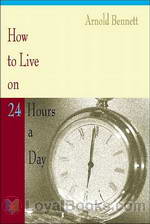 How to Live on Twenty-Four Hours a Day
How to Live on Twenty-Four Hours a Day
This book is a classic piece on self improvement teaching you to live to the fullest. Judging from the title of the book, the reader might expect that the book is a manual on how to manage your time better. Nothing could be further from the truth, this book is a flowery and witty self help book aimed at helping readers improve the quality of their lives, in fact it is one of the firsts of its kind in the world. Bennett describes the twenty four hours in a day as a miracle and that it should be used for the betterment of health, wealth, respect, pleasure and contentment... | |
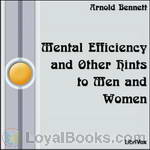 Mental Efficiency and Other Hints to Men and Women
Mental Efficiency and Other Hints to Men and Women
Mental Efficiency and Other Hints to Men and Women is one of the many self help books that Bennett wrote, the most famous of these being How to Live 24 Hours a Day. It is highly readable, amusing and offers wisdom in an extremely palatable form. Bennett's gift for analysis and his knowledge of philosophy and psychology make this book a valuable treasure trove of handy hints to improve our lives. Though it was first published in 1911, it remains as relevant, wise and useful as it did more than a hundred years ago... | |
 Literary Taste: How to Form It
Literary Taste: How to Form It
Arnold Bennett describes a method for enjoying literature, and suggests the contents of a comprehensive library. Chapters 1-10 and 14 describe his method for learning to enjoy literature. Chapters 11, 12, and 13 contain detailed lists of the 337 volumes required to complete a comprehensive library of English works. This reading is from the 1913 version at Project Gutenberg, and so does not contain the revisions made by Swinnerton for the 1939 edition, which included authors of the early Twentieth Century. Swinnerton’s revisions are available from Wikipedia. | |
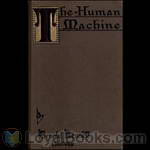 The Human Machine
The Human Machine
Bennett asks us to consider our brains as the most wonderful machine, a machine which is the only thing in this world that we can control. As he writes: "I am simply bent on calling your attention to a fact which has perhaps wholly or partially escaped you -- namely, that you are the most fascinating bit of machinery that ever was."As ever, his prose is honeyed, his thoughts inspired, and his advice as relevant today as when it was written. (Introduction by Ruth Golding) | |
By: Grenville Kleiser (1868-1953) | |
|---|---|
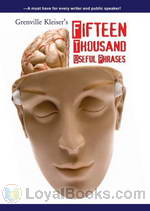 Fifteen Thousand Useful Phrases
Fifteen Thousand Useful Phrases
Fifteen Thousand Useful Phrases is a practical handbook written by Grenville Kleiser. Grenville is known for his writings on humor, positive thinking and inspirational thought. This serves as a handbook of pertinent expressions, striking similes and terms for embellishing speech and literature. This book can be used to improve vocabulary for reading, writing and speaking alike. Through mastery of words, the most powerful and perfect expression of thought can be delivered orally. Choosing the correct words conveys ideas in a crisp and clear way that will hold and audience's attention... | |
By: Wilkie Collins (1824-1889) | |
|---|---|
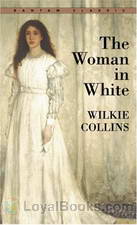 The Woman in White
The Woman in White
Wilkie Collins’s The Woman in White tells the story of two half-sisters, Laura Fairlie and Marian Halcombe who were embroiled in the sinister plot of Sir Percival Glyde and Count Fosco to take over their family’s wealth. It’s considered to be one of the first “sensation novels” to be published. Like most novels that fall into this category, the protagonists here are pushed to their limits by the villains before they finally got the justice they deserved. The story begins with Walter Hartright helping a woman dressed in white who turned out to have escaped from a mental asylum... | |
By: Anicius Manlius Severinus Boethius (480-524/525) | |
|---|---|
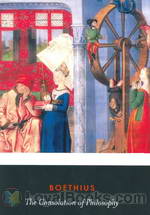 The Consolation of Philosophy
The Consolation of Philosophy
Consolation of Philosophy (Latin: Consolatio Philosophiae) is a philosophical work by Boethius written in about the year 524 AD. It has been described as the single most important and influential work in the West in medieval and early Renaissance Christianity, and is also the last great work that can be called Classical. Consolation of Philosophy was written during Boethius’ one year imprisonment while awaiting trial, and eventual horrific execution, for the crime of treason by Ostrogothic King Theodoric the Great... | |
By: Plato (427-347) | |
|---|---|
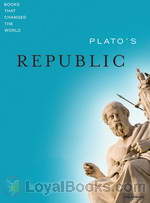 Plato's Republic
Plato's Republic
Plato's Republic is a Socratic dialogue which deals mainly with the definition of justice, the characteristics of a just city state and the just man. Although it was written more than two thousand years ago, many of the ideas and thoughts expounded here are still very much relevant to modern society. This is Plato's best known work and is also considered his most influential especially when it comes to the fields of philosophy and political theory. The Republic is divided into ten books and in each book Socrates discusses different topics from the immortality of the soul to the meaning of justice with his disciples like Glaucon, Thrasymachus, Adeimantus and others... | |
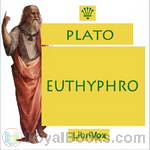 Euthyphro
Euthyphro
Awaiting his trial on charges of impiety and heresy, Socrates encounters Euthyphro, a self-proclaimed authority on matters of piety and the will of the gods. Socrates, desiring instruction in these matters, converses with Euthyphro, but as usual, the man who professes to know nothing fares better than the man who claims to be an expert. One of Plato’s well-known Socratic Dialogues, Euthyphro probes the nature of piety, and notably poses the so-called Euthyphro Dilemma: Do the gods love a thing because it is holy, or is a thing holy because it is loved by the gods? | |
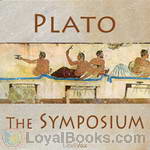 The Symposium
The Symposium
The Symposium (Ancient Greek: Συμπόσιον) is a philosophical book written by Plato sometime after 385 BCE. On one level the book deals with the genealogy, nature and purpose of love, on another level the book deals with the topic of knowledge, specifically how does one know what one knows. The topic of love is taken up in the form of a group of speeches, given by a group of men at a symposium or a wine drinking party at the house of the tragedian Agathon at Athens. Plato constructed the Symposium as a story within a story within a story... | |
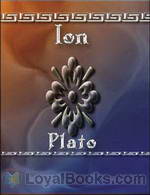 Ion
Ion
In Plato’s Ion, Socrates questions Ion on whether he should really claim laud and glory for his ‘rhapsodic’ recitals of Homer’s poetry. | |
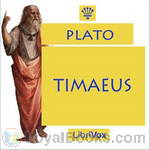 Timaeus
Timaeus
“Our intention is, that Timaeus, who is the most of an astronomer amongst us, and has made the nature of the universe his special study, should speak first, beginning with the generation of the world and going down to the creation of man…” ‘Timaeus’ is usually regarded as one of Plato’s later dialogues, and provides an account of the creation of the universe, with physical, metaphysical and ethical dimensions, which had great influence over philosophers for centuries following. It attributes the order and beauty of the universe to a benevolent demiurge – a ‘craftsman’ or god – fashioning the physical world after the pattern of an ideal, eternal one... | |
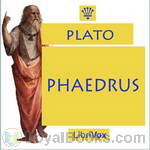 Phaedrus
Phaedrus
“For there is no light of justice or temperance, or any of the higher ideas which are precious to souls, in the earthly copies of them: they are seen through a glass, dimly…”Socrates and his earnest friend Phaedrus, enjoying the Athenian equivalent of a lunchtime stroll in the park, exchange views on love and on the power of words, spoken and written.Phaedrus is the most enchanting of Plato’s Erotic dialogues (capitalised in honour of the god). The barefoot philosopher urges an eager young... | |
By: James Baldwin (1841-1925) | |
|---|---|
 Four Great Americans: Washington, Franklin, Webster, Lincoln. A Book for Young Americans
Four Great Americans: Washington, Franklin, Webster, Lincoln. A Book for Young Americans
Written for children, James Baldwin’s history of Washington, Franklin, Webster, and Lincoln brings these men to life in a way that will be interesting for adults as well. The stories touch on the little humanities of the great men, rather than dwelling on the great works and great events of their lifetimes, without ignoring the latter. | |